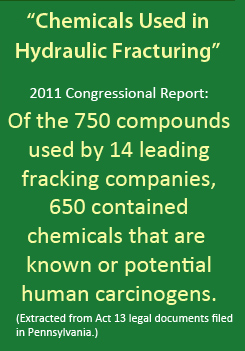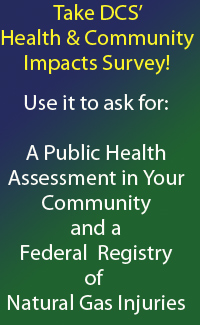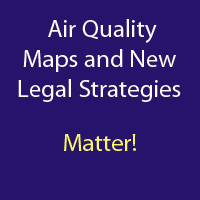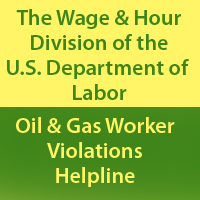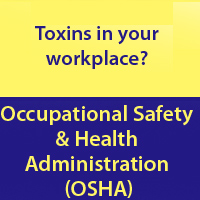Gov. Earl Ray Tomblin is calling for a study aimed at reversing the increase in workplace deaths that has accompanied the boom in natural gas drilling and production from the Marcellus Shale fields in Northern West Virginia. –
Wage theft rife in oil and gas industry cheats workers out of millions
A ProPublica review of U.S. Department of Labor investigations has found that the oil and gas industry is also rife with this kind of of corporate banditry. Naveena Sadasivam reports:
“In 2012, the DOL began a special enforcement initiative in its Northeast and Southwest regional offices targeting the fracking industry and its supporting industries. As of August this year, the agency has conducted 435 investigations resulting in over $13 million in back wages found due for more than 9,100 workers. ProPublica obtained data for 350 of those cases from the agency. In over a fifth of the investigations, companies in violation paid more than $10,000 in back wages.” (Definitely read more….)
Fracking workers exposed to dangerous amounts of benzene, study says
(NB GasVets.org: Although this article was first published 9/11/14, it’s received little attention. For more on worker health and threats to it, see GasVets’ Timeline of Federal Regulations which includes data from “What They Knew in 1988-89, and the 2011 Minority Congressional report which lists 650 fracking chemicals that are known- or potential-carcinogens, If you are a GasVet worker or a resident of “Gasland” who believes you’ve suffered harm from fracking, please participate in Damascus Citizens’ Health and Community Impacts Survey.)
“Some workers at oil and gas sites where fracking occurs are routinely exposed to high levels of benzene, a colorless gas that can cause cancer, according to a study by the National Institute for Occupational Safety and Health.
The agency, which is part of the Centers for Disease Control and Prevention, recommends that people limit their benzene exposure to an average of 0.1 of a part per million during their shift. But when NIOSH researchers measured the amount of airborne benzene that oil and gas workers were exposed to when they opened hatches atop tanks at well sites, 15 out of 17 samples were over that amount.
Benzene, a component of crude oil, “is of major concern because it can be acutely toxic to the nervous system, liver, and kidneys at high concentrations,” the study authors wrote. As the CDC explains, benzene interferes with the normal workings of cells.
‘It can cause bone marrow not to produce enough red blood cells, which can lead to anemia,” according to the CDC. “Also, it can damage the immune system by changing blood levels of antibodies and causing the loss of white blood cells.’”
Confessions of an Oil and Gas Worker: I live in Heaven, but I work in Hell…
“I live in Heaven, but I work in Hell…
My family and I moved away from Alberta last September in order to have a better life. We chose a place that was near my wife’s hometown in New Brunswick. A place where the speed of life is slower and more manageable. Now we find out this area is targeted for oil and gas development.”
Romanian Fracking worker dies on the job, as toxic frack chemicals kill or harm many more around the world.
“…they came for the [workers] and I didn’t stand up…” Please defend the world’s workforce. They are we and we are they. Join us at our Gas Vets Facebook page and on Twitter.
The AFL-CIO Issues 23rd Annual “Death on the Job Report” and fracking in North Dakota shows alarming data.
- The fatality rate in the mining and oil and gas extraction sector in North Dakota was an alarming 104.0 per 100,000, more than six times the national fatality rate of 15.9 per 100,000 in this industry; and the construction sector fatality rate in North Dakota was 97.4 per 100,000, almost ten times the national fatality rate of 9.9 per 100,000 for construction. Read much, much more…..
